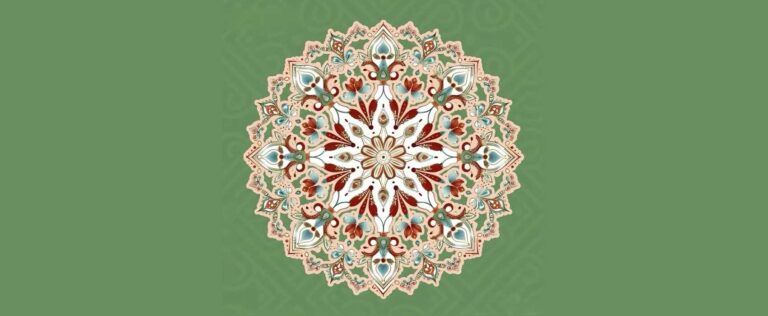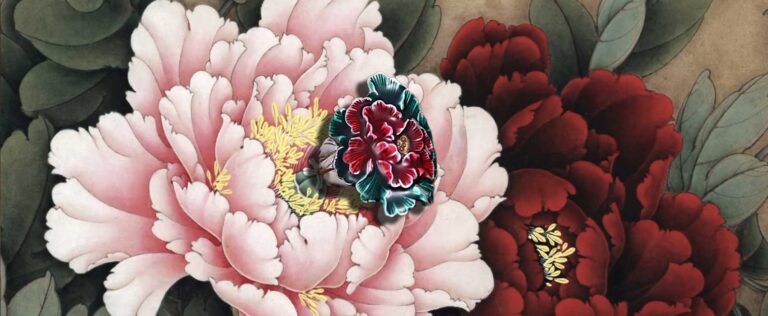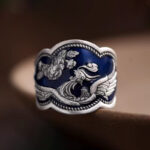Transcending Time: The Sage of Wisdom, Zhuge Liang
Wisdom is a timeless treasure sought after by many. In ancient Chinese history, Zhuge Liang, styled Kongming, has always shone with the light of wisdom and loyalty. He served as the Prime Minister of Shu Han during the Three Kingdoms period. He is renowned for his profound political foresight and exceptional military talent. His noble character and contributions to the state have earned him admiration throughout the ages. Let’s explore the extraordinary life of Zhuge Liang and how his story continues to inspire us today.
The Legendary Life of a Wise Man
Zhuge Liang was born into a family of officials and scholars. From a young age, he showed exceptional intelligence and an insatiable thirst for knowledge. His early life was not prominent, but it was filled with a longing for knowledge and a vision for the future. During those tumultuous times, he chose to live in seclusion. However, his talents and aspirations were not buried. Instead, his reputation gradually spread, eventually catching the attention of Liu Bei.
The Pillar of Shu Han
Zhuge Liang’s political career began with Liu Bei’s three visits to his thatched cottage. He was not only an outstanding strategist but also an exceptional politician. His political wisdom and philosophy of governance helped Shu Han maintain relative stability and prosperity amidst the tripartite balance of power.
- Strategic Planning and National Construction: Zhuge Liang proposed the famous Longzhong Strategy. This laid the foundation for Liu Bei’s later rise. He was both an excellent strategist and a skilled politician.
- Governance Philosophy: Deeply influenced by Confucian thought, Zhuge Liang emphasized core values such as benevolence, propriety, and loyalty. He advocated for tax relief and supported agricultural development. His goal was to improve the lives of the common people.
- Military Talent and Practice: Zhuge Liang was renowned for his exceptional military talent. He proposed a series of ingenious military strategies, including the famous Empty Fort Strategy and the Wooden Ox and Flowing Horse.
- Official Selection and Anti-Corruption: Zhuge Liang emphasized selecting officials with both moral integrity and talent. He promoted the principle of valuing morality as the foundation and talent as the essence.
- Cultural Heritage and Education Promotion: Zhuge Liang valued cultural heritage and educational development. He supported the restoration of ancient cultural works to maintain the vitality of cultural traditions.
- Grassroots Governance and Local Government: Zhuge Liang focused on local governance. He supported the autonomy of grassroots officials and advocated for them to understand local issues deeply. This allowed them to solve various problems according to local conditions.
- Rule of Law and Fairness: Zhuge Liang advocated for the principle of rule of law, emphasizing fairness and justice.
- Agriculture and Economic Development: Zhuge Liang paid attention to agricultural development. He proposed policies for farmland management and land distribution to promote agricultural production.
The Wise Strategist on the Battlefield
Zhuge Liang is known for his exceptional military talent. On the battlefield, his deployments demonstrated extraordinary military ability. Many battles showcased his strategic vision and command capabilities. Stories such as the Borrowing of Arrows by the Straw Boats and the Empty Fort Strategy have become classic cases in both Chinese and world military history. Zhuge Liang’s military thoughts and practices are still studied and discussed by military scholars and enthusiasts today.
- Empty Fort Strategy: When facing Sima Yi’s army, Zhuge Liang adopted this clever strategy. He ordered his soldiers to open the city gates and played the zither on the city tower. This created an illusion of an empty city. Sima Yi, suspecting an ambush, did not dare to attack and ultimately chose to retreat. This strategy reflected Zhuge Liang’s precise grasp of enemy psychology and his bold decision-making.
- Borrowing of Arrows by the Straw Boats: On the eve of the Battle of Red Cliffs, Zhuge Liang took advantage of heavy fog. He loaded straw boats with straw dummies and pretended to attack Cao Cao’s navy. This lured the Cao army into shooting a large number of arrows. This strategy not only solved the problem of insufficient arrows for the Shu Han army but also greatly boosted morale.
- Seven Captures of Meng Huo: While pacifying the southern rebellion, Zhuge Liang adopted the strategy of “attacking the heart first, then the city.” He captured and released the southern barbarian leader Meng Huo seven times in a row. Eventually, he made Meng Huo completely submit, stabilizing the southern border of Shu Han. This battle fully demonstrated Zhuge Liang’s magnanimity, strategy, and insight into human nature.
A Man of Many Talents
In addition to politics and military affairs, Zhuge Liang made significant contributions in culture and technology. His literary works, such as the ‘Memorial on the Departure for the Expedition,’ are still revered and studied today. His inventions, such as the Wooden Ox and Flowing Horse and the Kongming Lantern, not only solved practical problems but also reflected his spirit of innovation and emphasis on technology.
Wisdom is a timeless treasure sought after by many. In ancient Chinese history, Zhuge Liang, styled Kongming, has always shone with the light of wisdom and loyalty. He served as the Prime Minister of Shu Han during the Three Kingdoms period. He is renowned for his profound political foresight and exceptional military talent. His noble character and contributions to the state have earned him admiration throughout the ages. Let’s explore the extraordinary life of Zhuge Liang and how his story continues to inspire us today.
The Legendary Life of a Wise Man
Zhuge Liang was born into a family of officials and scholars. From a young age, he showed exceptional intelligence and an insatiable thirst for knowledge. His early life was not prominent, but it was filled with a longing for knowledge and a vision for the future. During those tumultuous times, he chose to live in seclusion. However, his talents and aspirations were not buried. Instead, his reputation gradually spread, eventually catching the attention of Liu Bei.
The Pillar of Shu Han
Zhuge Liang’s political career began with Liu Bei’s three visits to his thatched cottage. He was not only an outstanding strategist but also an exceptional politician. His political wisdom and philosophy of governance helped Shu Han maintain relative stability and prosperity amidst the tripartite balance of power.
- Strategic Planning and National Construction: Zhuge Liang proposed the famous Longzhong Strategy. This laid the foundation for Liu Bei’s later rise. He was both an excellent strategist and a skilled politician.
- Governance Philosophy: Deeply influenced by Confucian thought, Zhuge Liang emphasized core values such as benevolence, propriety, and loyalty. He advocated for tax relief and supported agricultural development. His goal was to improve the lives of the common people.
- Military Talent and Practice: Zhuge Liang was renowned for his exceptional military talent. He proposed a series of ingenious military strategies, including the famous Empty Fort Strategy and the Wooden Ox and Flowing Horse.
- Official Selection and Anti-Corruption: Zhuge Liang emphasized selecting officials with both moral integrity and talent. He promoted the principle of valuing morality as the foundation and talent as the essence.
- Cultural Heritage and Education Promotion: Zhuge Liang valued cultural heritage and educational development. He supported the restoration of ancient cultural works to maintain the vitality of cultural traditions.
- Grassroots Governance and Local Government: Zhuge Liang focused on local governance. He supported the autonomy of grassroots officials and advocated for them to understand local issues deeply. This allowed them to solve various problems according to local conditions.
- Rule of Law and Fairness: Zhuge Liang advocated for the principle of rule of law, emphasizing fairness and justice.
- Agriculture and Economic Development: Zhuge Liang paid attention to agricultural development. He proposed policies for farmland management and land distribution to promote agricultural production.
The Wise Strategist on the Battlefield
Zhuge Liang is known for his exceptional military talent. On the battlefield, his deployments demonstrated extraordinary military ability. Many battles showcased his strategic vision and command capabilities. Stories such as the Borrowing of Arrows by the Straw Boats and the Empty Fort Strategy have become classic cases in both Chinese and world military history. Zhuge Liang’s military thoughts and practices are still studied and discussed by military scholars and enthusiasts today.
- Empty Fort Strategy: When facing Sima Yi’s army, Zhuge Liang adopted this clever strategy. He ordered his soldiers to open the city gates and played the zither on the city tower. This created an illusion of an empty city. Sima Yi, suspecting an ambush, did not dare to attack and ultimately chose to retreat. This strategy reflected Zhuge Liang’s precise grasp of enemy psychology and his bold decision-making.
- Borrowing of Arrows by the Straw Boats: On the eve of the Battle of Red Cliffs, Zhuge Liang took advantage of heavy fog. He loaded straw boats with straw dummies and pretended to attack Cao Cao’s navy. This lured the Cao army into shooting a large number of arrows. This strategy not only solved the problem of insufficient arrows for the Shu Han army but also greatly boosted morale.
- Seven Captures of Meng Huo: While pacifying the southern rebellion, Zhuge Liang adopted the strategy of “attacking the heart first, then the city.” He captured and released the southern barbarian leader Meng Huo seven times in a row. Eventually, he made Meng Huo completely submit, stabilizing the southern border of Shu Han. This battle fully demonstrated Zhuge Liang’s magnanimity, strategy, and insight into human nature.
A Man of Many Talents
In addition to politics and military affairs, Zhuge Liang made significant contributions in culture and technology. His literary works, such as the ‘Memorial on the Departure for the Expedition,’ are still revered and studied today. His inventions, such as the Wooden Ox and Flowing Horse and the Kongming Lantern, not only solved practical problems but also reflected his spirit of innovation and emphasis on technology.
Conclusion
The life of Zhuge Liang was a relentless pursuit of wisdom and loyalty. His story reminds us that, no matter how times change, wisdom and courage are always our most precious treasures. In this era full of challenges and opportunities, let us embrace the wisdom of Zhuge Liang and create our own legends with courage and wisdom.
Conclusion
The life of Zhuge Liang was a relentless pursuit of wisdom and loyalty. His story reminds us that, no matter how times change, wisdom and courage are always our most precious treasures. In this era full of challenges and opportunities, let us embrace the wisdom of Zhuge Liang and create our own legends with courage and wisdom.
Bracelet Inspiration
This bracelet combines Natural Map Stone and Tiger’s Eye. It represents insight, stability, courage, and wisdom. It reminds us that wisdom and courage are eternal. Let us carry this light and bravely pursue our dreams, firmly moving towards our future. At every turn in life, Kongming’s wisdom and courage will be our most reliable guides.
Bracelet Inspiration
This bracelet combines Natural Map Stone and Tiger’s Eye. It represents insight, stability, courage, and wisdom. It reminds us that wisdom and courage are eternal. Let us carry this light and bravely pursue our dreams, firmly moving towards our future. At every turn in life, Kongming’s wisdom and courage will be our most reliable guides.









